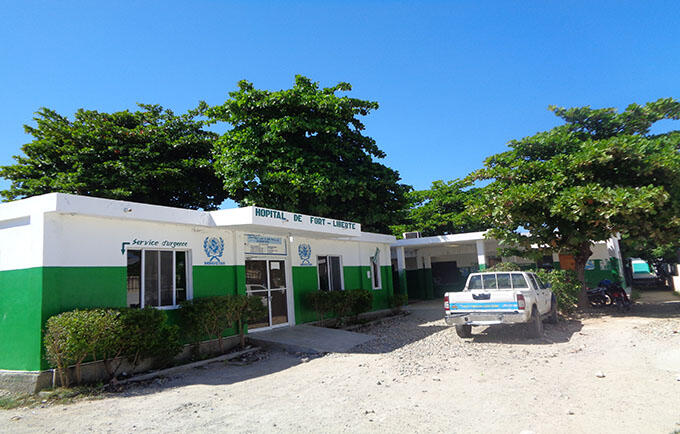Port-au-Prince, 20 November 2017 --- UNFPA, the United Nations Population Fund, in collaboration with several partners, is mapping the medical, psychosocial and legal care structures for gender-based violence (GBV) for the different departments of Haiti.
This exhaustive work of listing these structures began, from 22 to 28 October 2017, in the North-East and Northern departments, with the participation of the Center for Development for Health (CDS), the Northern Health Directorate, the Coordinations of the Ministry of Women's Status and Women's Rights (MCFDF) in the North-East and North, the NGO "Solidarités Nord-Est", the Association "Fanm Solèy Dayiti" (AFASDA), the Medical and Social Center of Ouanaminthe, the Legal Aid Office of Fort-Liberté, and the Departmental Directorate of the National Police in the North.
According to Haiti's Population and Development Program Manager, Jacob Jean-François, "the purpose of this mapping is to provide development agents and the general public with all the information they need to find quickly structures or institutions that perform different types of GBV care in different departments.
In the same vein, the Technical Director of CDS, Dr. Lionel Barthélemy, indicates that "this reference document, cartography, by allowing the knowledge of the actors, will facilitate at the same time their rapid mobilization in contingency situations".
The methodology consists first of classifying the structures according to the forms of care (medical, psychosocial, legal). Questionnaires are then administered to key persons in the departmental health directorates, departmental coordinators of the MCFDF, the National Police, legal assistance offices, NGOs and associations. Finally, a training session is organized, followed by the verification of information collected in the department.
The second mapping mission will take place from 19 to 25 November 2017, in the North West and Artibonite, these two departments added to that of the North being the targeted regions for 2017. UNFPA and its partners, however, aspire to extend this mapping in other departments of the country from 2018.
The mapping of the structures for dealing with gender-based violence is an extension of the actions aimed at enabling UNFPA and its partners to intervene effectively in humanitarian settings, as defined in the 2017 contingency plan.


